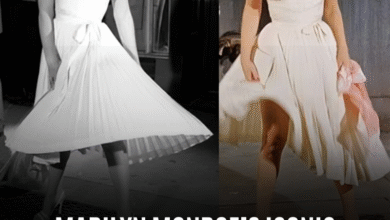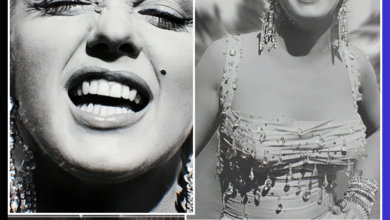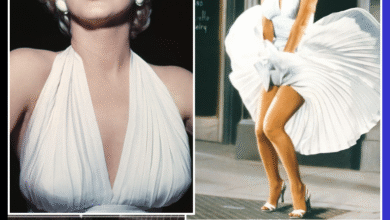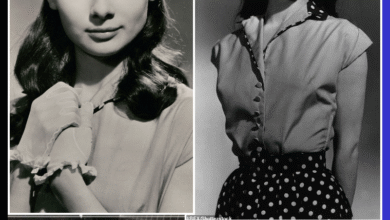Audrey Hepburn’s Secret to Success: Why Skipping College Didn’t Stop Her from Becoming an Icon!
OPINION: This article may contain commentary which reflects the author's opinion.
Audrey Hepburn remains one of the most iconic figures in Hollywood history, celebrated for her grace, timeless beauty, and remarkable achievements both on and off the screen. Born on May 4, 1929, in Brussels, Belgium, Hepburn’s journey is one of resilience, talent, and a determination to follow her passion. What’s particularly compelling about her story is how she achieved international stardom and became an influential humanitarian, all without a college education.
Early Life and Educational Background
Hepburn’s early years were marked by personal and geopolitical upheaval. After her parents’ separation in 1935, she was sent to a boarding school in England, where she received a basic secondary education. However, she never attended college, a stark contrast to the educational paths followed by many other Hollywood stars. Instead, Hepburn’s passion for the arts took center stage, particularly ballet, during her formative years.
Her ballet training began at the Arnhem Conservatory of Music in the Netherlands, where she quickly became a star pupil despite the disruptions caused by World War II. Following the war, she continued her training in Amsterdam and later received a scholarship to study at the prestigious Marie Rambert Ballet School in London. While her height—standing at 5’7”—was considered too tall for a professional ballet career, Hepburn’s transition to acting would prove to be her true calling.
From Ballet to Hollywood Stardom
Hepburn’s career took off in the early 1950s, with her debut in Secret People (1952), leveraging her ballet background. Her breakout role, however, came with Roman Holiday (1953), where she played a princess exploring the streets of Rome. This performance earned her an Academy Award for Best Actress, making her the first actor to win an Oscar for a performance in a film that was not a major studio production.
Following her Oscar win, Hepburn starred in a string of successful films, including Sabrina (1954), Breakfast at Tiffany’s (1961), and My Fair Lady (1964). These roles cemented her status as a Hollywood icon, and Hepburn became one of the few entertainers to achieve the coveted EGOT—winning an Emmy, Tony, Grammy, and Academy Award. Her success, however, was not due to a college degree but instead stemmed from her natural talent, unwavering determination, and the opportunities she seized throughout her career.
One of her most enduring contributions to fashion and pop culture came from Breakfast at Tiffany’s, where her portrayal of Holly Golightly set new fashion trends, particularly her iconic little black dress and oversized sunglasses. Hepburn’s ability to make fashion statements that are still relevant today demonstrates the power of her on-screen presence and creativity.
Humanitarian Efforts and Legacy
In the later years of her life, Hepburn shifted her focus to humanitarian work, becoming a UNICEF Goodwill Ambassador in 1988. She worked tirelessly to raise awareness and funds for children in need, traveling to famine-stricken Ethiopia, polio vaccine projects in Turkey, and advocating for children’s education and health in countries such as Venezuela, Ecuador, and Bangladesh. Her contributions to global health and education were nothing short of transformative.
Hepburn’s dedication to these causes earned her the Presidential Medal of Freedom in 1992, just a few years before her death. Her advocacy work was as powerful and impactful as her acting career, and it stands as a testament to the influence one person can have when they are dedicated to making the world a better place.
Proving Success Without a College Education
Audrey Hepburn’s life exemplifies that formal education is not the only route to success. She achieved international fame and acclaim through her talent, hard work, and dedication to her craft. While she didn’t attend college, her story underscores that alternative paths—when combined with passion and perseverance—can lead to extraordinary success.
Hepburn’s journey challenges the conventional wisdom that a college degree is necessary for greatness. Her story shows that with resilience, the right opportunities, and a clear vision, anyone can succeed, regardless of their educational background. As she famously said, “Nothing is impossible. The word itself says ‘I’m possible!’”
However, it’s important to acknowledge that her path was unique and shaped by the timing and opportunities of the mid-20th century. While her story is inspirational, it is not a universal blueprint. Today, higher education continues to be a valuable tool for many, but Hepburn’s life offers a compelling alternative for those who may not follow the traditional educational trajectory.
Conclusion
Audrey Hepburn’s legacy transcends Hollywood. She remains an enduring symbol of elegance, talent, and grace, both in her cinematic roles and her humanitarian efforts. Her success story proves that, although a college degree may be an important asset for many, it is not a prerequisite for success. Hepburn’s ability to forge her own path—relying on her natural abilities, determination, and a deep commitment to her passions—continues to inspire generations to come.



